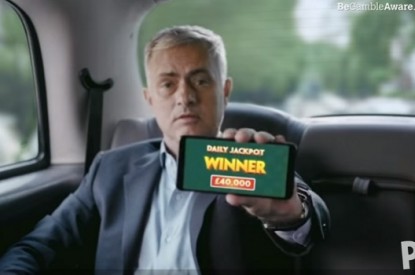Legislation
UK – Committees of Advertising Practice wants to impose far-reaching constraints on advertising
By Phil - 26 October 2020
The Committees of Advertising Practice wants to ban ‘sports people and celebrities, and also individuals like social media influencers’ from being used to promote gambling services.
A spokesperson said: “We launched a public consultation on proposals to introduce new strengthened rules and guidance to better protect children and young people (under-18s) and vulnerable people from potential gambling-advertising related harms. We are proposing to update our rules and guidance to further restrict the potential for gambling and lotteries ads to appeal to and adversely impact under-18s and vulnerable adults. The new restriction would have significant implications for gambling advertisers looking to promote their brands using prominent sports people and celebrities, and also individuals like social media influencers.”
The UK Advertising Codes have long contained strict, category specific restrictions around gambling and lotteries ads which are designed to limit their appeal to children and children’s exposure to them. The consultation responds to key findings from important recent research commissioned by GambleAware, which provides the first wide-ranging and in-depth picture of the impact of marketing and advertising in the UK. Its findings suggest that the creative content of gambling and lotteries advertising that abides by the UK Advertising Codes has more potential, than previously understood, to adversely impact under-18s and vulnerable adults.
Cap wants to ‘strengthen the rules to prohibit creative content of gambling and lotteries ads from appealing ‘strongly’ to under-18s (currently gambling ads are prohibited from appealing particularly to under-18s; in other words, they are banned from appealing more to under-18s than to adults).’
It wants to bring in a ‘strong’ appeal test identifies content (imagery, themes and characters) that has a strong level of appeal to under-18s regardless of how it is viewed by adults.’
Adopting the ‘strong’ appeal test would decrease the potential for gambling ads to attract the attention of under-18s in an audience. Child-oriented content (like animated characters and superheroes) are already banned. The new rules would extend to cover characters’ behaviour, language, fashion/appearance etc, which are likely to appeal strongly to under 18s. In particular, ads would be prohibited from including a person or character who is likely to be followed by those aged under 18 years or who has a strong appeal to those aged under 18.
It also wants to update existing guidance to stops ads presenting complex bets in a way that emphasises the skill or intelligence involved to suggest, inappropriately, a level of control over the bet that is unlikely to apply in practice. It wants to ban presenting gambling as a way to be part of a community based on skill alongside any ads implying that money back offers create security (for example, because they give gamblers the chance to play again if they fail or that a bet is ‘risk free’ or low risk). It wants to ban humour or light-heartedness being used specifically to play down the risks of gambling; and unrealistic portrayals of winners (for example, winning first time or easily).
These proposals seek to strike a proportionate and effective balance between allowing gambling operators freedom to advertise to a legitimate adult audience with the need to protect under-18s’ and vulnerable adults from the potential harms that can arise from gambling advertising that is irresponsible.
Director of the Committees of Advertising Practice, Shahriar Coupal said: “The consultation proposes a strengthening of our rules and guidance which will help us in our ongoing work to prevent children, young and other vulnerable people from being harmed or exploited by gambling advertising. It responds to valuable research commissioned by GambleAware that has highlighted how gambling ads have more potential than previously understood to adversely impact these audiences – that’s something we take very seriously and that we are aiming to address.”


